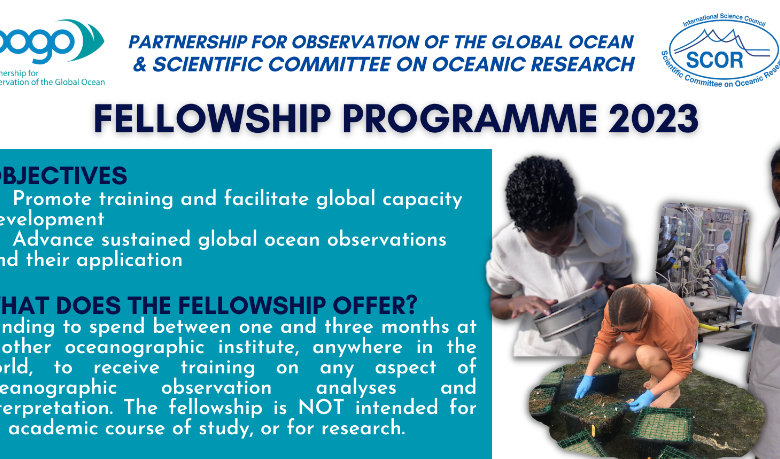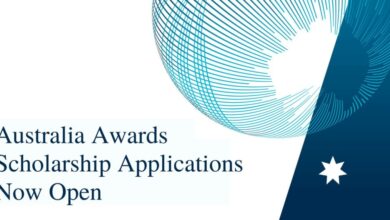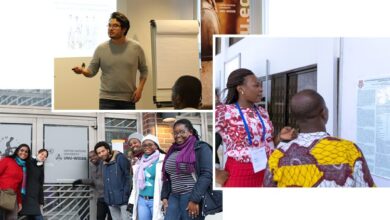
For the POGO-SCOR Fellowship Programme 2023, applications are now being accepted. This program, which is jointly supported by POGO and the Scientific Committee on Oceanic Research (SCOR), aims to support capacity development and training initiatives that will eventually result in a worldwide ocean observation program. Since 2001, 190 fellowships have been given as a result of the program’s success, which spans about 20 years.
The program’s principal goal is to develop long-term ocean observations and related uses. Candidates in the early phases of their careers are given preference. Instead of teaching research methods, this fellowship is meant to assist training in oceanographic observations. Its major objective is to develop sustained ocean observations and their applications, and it provides the chance to spend a little amount of time at different oceanographic centers (11).
Cost:
The following costs are covered by the program:
- International airfare
- Transport from airport to host institute
- Contribution towards living expenses
Eligibility:
- Open to scientists, technicians, postgraduate students (preferably of PhD level) and post-doctoral fellows of developing countries and countries with economies in transition and involved in oceanographic work.
- Applicants must be citizens of developing countries or economies in transition, as defined by the Development Assistance Committee (DAC) of the OECD.
Selection Criteria:
The Selection Criteria involve a number of factors including:
- Quality of the application;
- Relevance of the application to the priority areas identified in the Fellowship Announcement (Emerging and low-cost technologies for ocean observations; Physical, biological and biogeochemical sensors on floats and gliders; Floating litter observations and modelling; Open and coastal ocean observation, modelling and management; Data management & time series analysis; Underwater sound, acoustic observations and modelling; Optical measurements of living and non-living particles; Fixed-point time-series observations (e.g. contributing to OceanSITES, OBIS, IODE Ocean Data Portal, WOD and/or other shared data systems); Large-scale, operational biological observations including biomolecular and biodiversity (e.g. biological EOVs, CPR, OBON and other programmes));
- Evidence that the training will lead to capacity-building with potential lasting impact on regional observations; and,
- The need to maximise regional distribution of the awards.
Application:
Documents you will need to upload to the application portal:
- proposal form (use template provided)
- flight quotation evidence (e.g., screenshot of airline website, travel agency quotation)
- parent supervisor recommendation letter
- host supervisor acceptance letter







